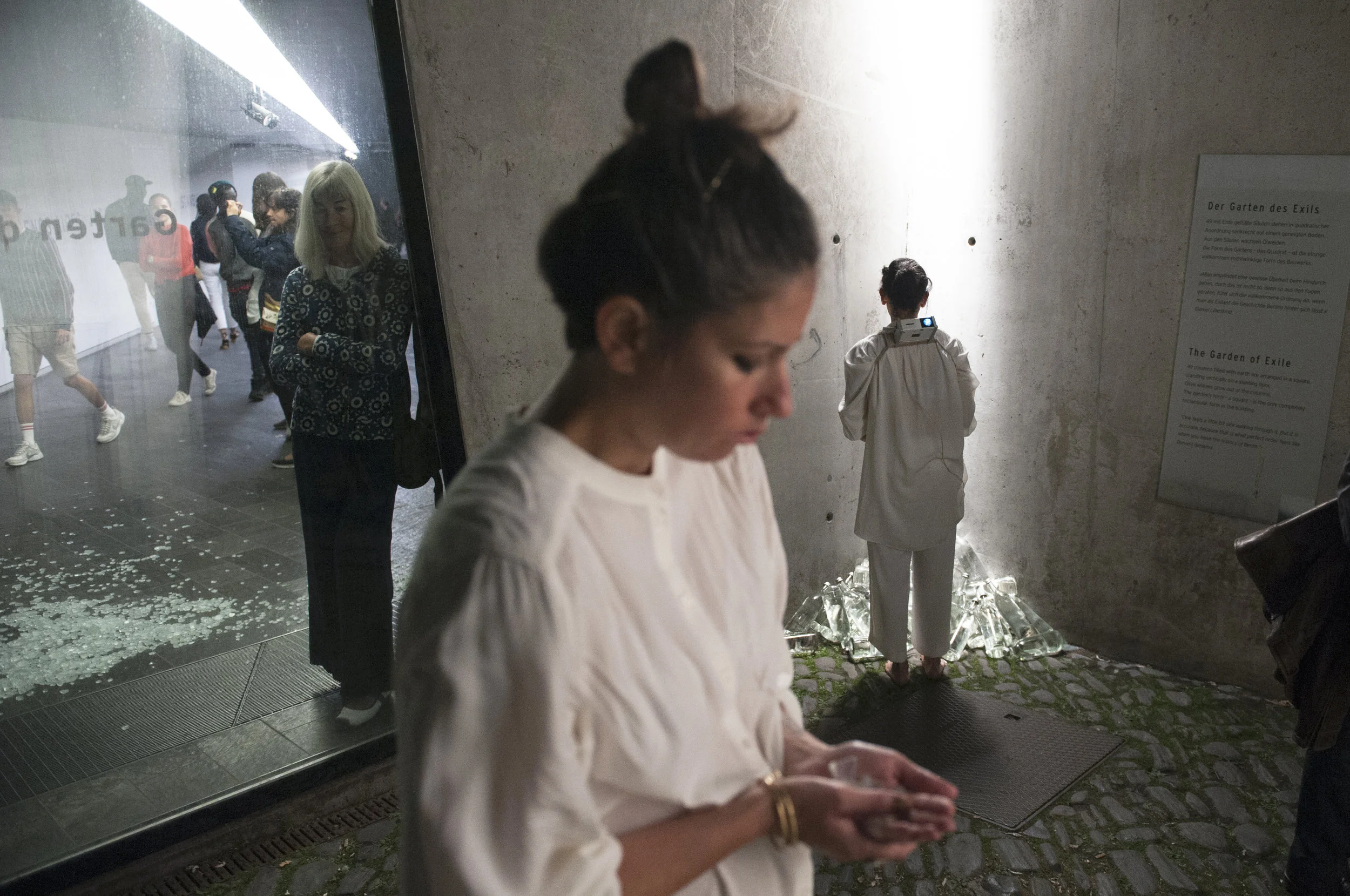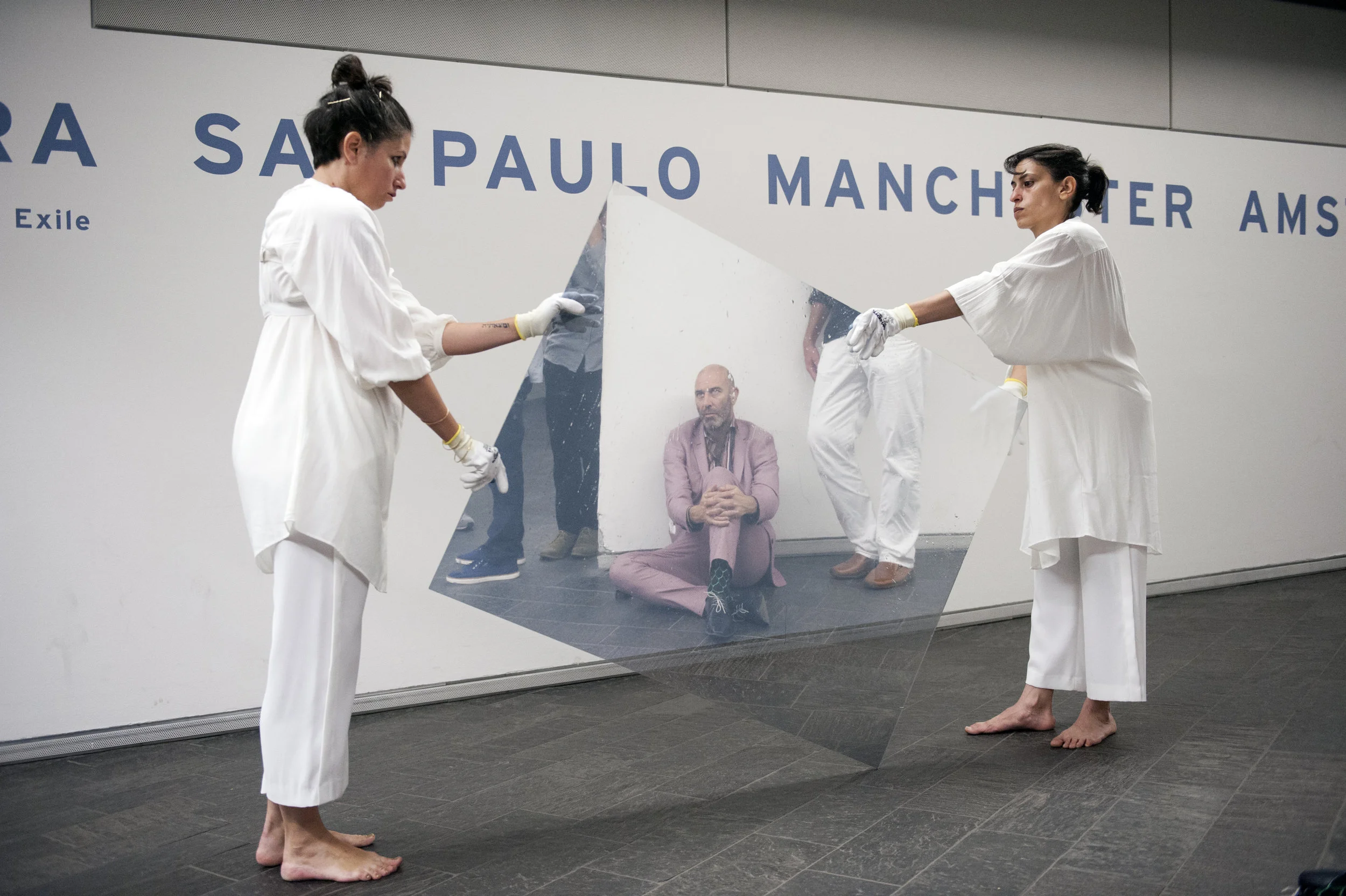photographs by ariel levin
Up.SIDE.DOWN
A durational performance by Hori Izahki and Adi Liraz
Part of the long night of museums in Berlin, Saturday, August 25th 2018, 8pm-00am
Jewish Museum Berlin,
Lindenstraße 9-14, 10969 Berlin
Jerusalem-Berlin/Berlin-Jerusalem - about history, identity and erasure.
The artists deconstruct a collective identity that, in the interest of a homogenous society, overwrites divergent personal and collective histories. Is it possible to completely erase an identity? Not only of one’s body, but of a location, of histories, of cultures? What happens to our reflections when we try to erase parts of the space in which we are present?
Meeting at the in-between point of void and overload, Adi Liraz and Hori Izhaki arrive into this process from fundamentally different backgrounds. While Izhaki’s family came to Israel / Palestine as Arabic speaking Jews from Iraq and Morocco, Liraz family has its origin in Greece and East Europe. With a circular structure durational performance, the artists aim to reveal perspectives of identity, connecting the overload of national identities, and the void left by their forcefully neglected origins, with the spatial scenery of the museum: the sensory overload of the “Welcome to Jerusalem” exhibition and the radical emptiness of Libeskind’s architecture.
„…between utopias and these quite other sites, these heterotopias, there might be a sort of mixed, joint experience, which would be the mirror. The mirror is, after all, a utopia, since it is a placeless place. In the mirror, I see myself there where I am not, in an unreal, virtual space that opens up behind the surface; I am over there, there where I am not, a sort of shadow that gives my own visibility to myself, that enables me to see myself there where I am absent: such is the utopia of the mirror. But it is also a heterotopia in so far as the mirror does exist in reality, where it exerts a sort of counteraction on the position that I occupy. From the standpoint of the mirror I discover my absence from the place where I am since I see myself over there. Starting from this gaze that is, as it were, directed toward me, from the ground of this virtual space that is on the other side of the glass, I come back toward myself; I begin again to direct my eyes toward myself and to reconstitute myself there where I am. The mirror functions as a heterotopia in this respect: it makes this place that I occupy at the moment when I look at myself in the glass at once absolutely real, connected with all the space that surrounds it, and absolutely unreal, since in order to be perceived it has to pass through this virtual point which is over there“
Michel Foucault, „Of other Spaces

